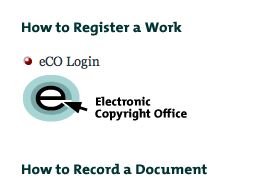Why Register a Copyright If You Don’t Want to Sue?
 In a recent blog entry, greeting card designer Kate Harper posted a shocking statistic, saying that “You are more likely to be killed in a car wreck or by a firearm, than to have your art stolen.”
In a recent blog entry, greeting card designer Kate Harper posted a shocking statistic, saying that “You are more likely to be killed in a car wreck or by a firearm, than to have your art stolen.”
While that would be a reassuring statistic, her very next paragraph seems to counter it, “I know everyone has a horror story, and I’ve heard many of them. And yes I have even had my art used (by the average clueless person) and I’m still alive.”
Instead of looking at actual copyright infringement numbers, to get her statistic, Harper looks at the number of lawsuits filed versus the number of registrations that have been filed. Unfortunately, these numbers don’t cover the cases of copyright infringement resolved out of court including via DMCA notice, cease and desist letter and generally asking them nicely to stop. It also doesn’t cover the cases where no action was taken at all.
In my experience, for every case of copyright infringement that results in any kind of a lawsuit, thousands, if not tens of thousands, are dealt with via other means. For every case dealt with, thousands, if not tens of thousands more go untouched.
So, instead of simply saying “art stolen” the sentence should, ideally, read “If you have registered your copyright you are more likely to be killed in a car wreck or by a firearm than to ever file suit using that registration.” That, in turn, is very likely true.
While that seems to be less eye-catching, it does point to a separate issue. The majority of people who obtain copyright registrations never use them, at least not in court. So why go through the time and expense of registering your works?
There are actually many reasons for that and here are just a few of the bigger ones to consider.
Copyright Registrations Help w/ All Infringements
In many ways, carrying around a timely-filed copyright registration is a lot like carrying a loaded gun (to borrow the handgun comparison). With the threat of ultra-high statutory damages lingering over any infringer, especially those with deep pockets, they are more interested in settling copyright disputes quickly and making sure that the person with the registration is happy.
For example, the stock photo industry has used their copyright registrations to procure thousand dollar plus settlements from infringers as part of their controversial campaign. Generally, businesses know that it is better to pay the $1,000 settlement cost than to risk being hit with statutory damages that could reach $150,000.
Without a copyright registration, any cease and desist letter carries significantly less weight. Anyone who knows copyright law will realize that threats of litigation are, more or less, meaningless.
In short, even if you never file suit using your copyright registration, you have a much bigger upper hand in any copyright disputes that do arise, regardless if they never make it to court.
Better Contract Negotiations
If you are interested in licensing your work to third parties, having a timely-filed copyright registration is also a huge help here.
Not only does having the state of mind to register your work show that you are serious about it and not someone to be trifled with, but, going back to the loaded gun idea, it shows that you are a threat if your negotiating partner attempts to do something unsavory.
With countless cases of artists having works stolen while they were trying to negotiate licenses for them, having a registration or having filed one before you go into negotiations lessens the likelihood of that happening because doing it carries severe consequences.
In that regard, having a registration actually makes you less likely to be infringed.
Proof of Authorship
Finally, it’s important to remember that there are two sides to every copyright dispute. You can, just as easily, find yourself on the defendant side of one, especially if someone mistakes your creation for an infringement.
However, a copyright registration can help in these cases too.
If someone sues you for copyright infringement, your copyright registration services as prima facie evidence of ownership, meaning that it is considered evidence “on its face” and that the other side has the burden of proof in disproving it.
If your registration came before their work, the case is a slam dunk. Even if it didn’t, the presence of the registration greatly supports your arguments and may help in negotiating a settlement.
While it won’t do you much good to register a blatantly infringing work, if there is a legitimate dispute over ownership of a copyrighted work, having your version of it registered can be of great value.
Bottom Line
Though I’m critical of Harper’s inflammatory (and incorrect as presented) statement, I do agree with what she’s trying to do, namely encourage artists paralyzed with fear of their work being stolen to stop being so afraid. It’s a noble cause and one I support, though I prefer to educate artists on how to respond to infringement and on the simple truth that most infringement is, by itself, not that harmful.
Artists shouldn’t be prevented from creating art by the fear of being infringed, that doesn’t make sense when the law so clearly protects you. On that front, one of those key legal protections, in the U.S. at least, is copyright registraton and it is a powerful tool that can help you even if you never plan on suing.
That being said, you probably shouldn’t bother registering your work unless you are ready to sue. You might never need to and probably won’t, but much like carrying a loaded weapon (going back to that analogy once more). If you are going to carry it, you need to be prepared for the possibility you will have to use it. To do so otherwise is simply irresponsible.
As with anything in life, a copyright registration brings both rights and responsibilities so you should be ready for both before you send that registration off.
Want to Reuse or Republish this Content?
If you want to feature this article in your site, classroom or elsewhere, just let us know! We usually grant permission within 24 hours.
